Today's post is quite lengthy, so if you can't view the full thing in your inbox, you might want to try out the Substack app.
Welcome back to Career Compass on
: a monthly series exploring other women’s musings, meanderings and methods for navigating life, with a focus on their career paths. Through short interviews with twenty- or thirty-something women, we’ll explore linear and non-linear career paths, how they approach work to make it work for them, and the blurred lines between hobbies and hustles.💻🧭
Our guest for April (yes, technically it’s still March, but in the spirit of spring, and like any good glossy magazine, we are looking ahead!) is another inspirational woman I feel lucky to call a friend, Ellie Sugden. Technical Manager at Agulhas Applied Knowledge, a research and strategy consultancy focused on global challenges, Co-Founder of Our Generation for Inclusive Peace (OGIP), newly qualified yoga teacher, and all-round creative soul, Ellie is a globe-trotting staunch feminist, having lived in Hong Kong, Lebanon, and the UK - where for a time we were knocking about as flatmates, then friends, trying to navigate the early years of our careers.
Like me, and last month’s guest, Malin, Ellie was a student of politics, but one who has gone on to apply much of the theory we read about, and lengthily discussed over bad wine and cheap pints, through her career working in the international aid sector. Driven, passionate and committed to making change in the world through her work, Ellie also directs that energy into side projects and wider interests, which we explore more in this conversation.
Joining me for this interview from South Africa, the exchange is full of deep thoughts and inspirational snippets, and in that way it very much reflects the vibe of our chats at sporadically scheduled yet rich brunch dates at a regular little spot in London’s Primrose Hill.
I hope you enjoy…
Thank you Ellie for being a guest on The Navigation!
Could we start off with you sharing some musings on qualifying as a yoga teacher last year, and choosing to not go down the perhaps somewhat expected route of leaving your 9-5 job to make this your new career?
Primarily because of my motivation behind booking it. Doing my 200-hour Yoga Teacher Training (YTT) was on my 30 before 30 list that I made when I turned 29. I was reflecting on the passage of time and how fast it slips away when you’re on autopilot moving through the motions. During the pandemic, when travel wasn’t an option, I’d also started musing on the fact that holidays had become the defining benchmarks of my years. I wanted to break both trends. For the past three or four years I’ve tried to bring better intentionality to how I’m passing the time. I started taking courses in things totally unrelated to my job, setting little challenges for myself within the year; buying a run of 10 classes to something completely different for me – like Bollywood dance classes – and leaning into a new hobby.
At the same time, I was getting a bit sentimental about coming to the end of a decade and wrapped up in that was this desire to do things that my 20-year-old self would have been chuffed about. Hence a 30 before 30 list. We spend so much of our lives saying we’re going to do things that then fall by the wayside because we convince ourselves we don’t have the time or headspace. So, I compiled a list of the things I’d been banging on about doing for most of my 20s. For example, how many times did we discuss me having a fringe over the course of our mid-20s?! Debating if it would make me look French or ridiculous, bringing different love interests and friends into the discussion for their opinions. That went on the list. I got the fringe. It looked amazing 20% of the time and I looked a bit like a hedgehog for the remaining 80% - but now, I know.
When I was 25, I experienced anxiety for the first time and it got compounded when I moved to a new country alone and I knew literally no one. I found this small yoga studio tucked on a backstreet of Beirut and it became my sanctuary for nights when I couldn’t calm my heart rate and I faced another night of no plans. Gradually I found friends that felt like family and fell in love with the city, but daily yoga held me, my body, and my nervous system steady as I got to that place. Then it became a place that elevated my mood and sense of self as I grew into having one of the happiest chapters of my life.
My yoga teachers in Beirut channelled the discipline of the dance teachers I’d had as a child, coated in a softness and deep care for their students. I remember rushing to the studio after really difficult workdays. And on those days, doing something that I could feel myself progressing in fast - getting stronger, more flexible, holding funky balances - made me wish I had more of an outlet that allowed me to use my body. That’s when the dream of doing my YTT started, and it trickled through to my before 30 list. I know 25-year-old anxious me in a new city would be so proud to have known the 29-year-old me, becoming a yoga teacher in the Peruvian jungle, having rid herself of wobbles. So, I never really did it to teach, but more as a gift to myself.
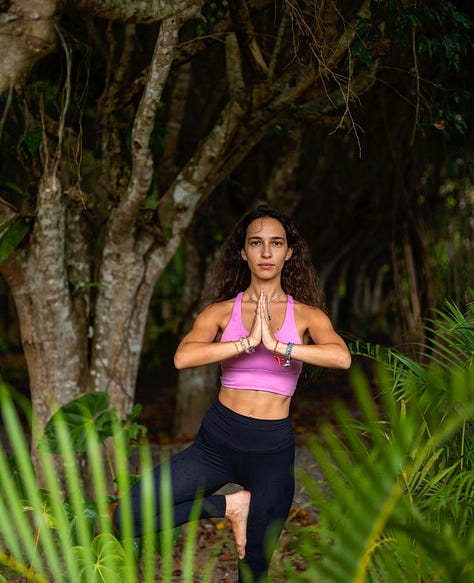
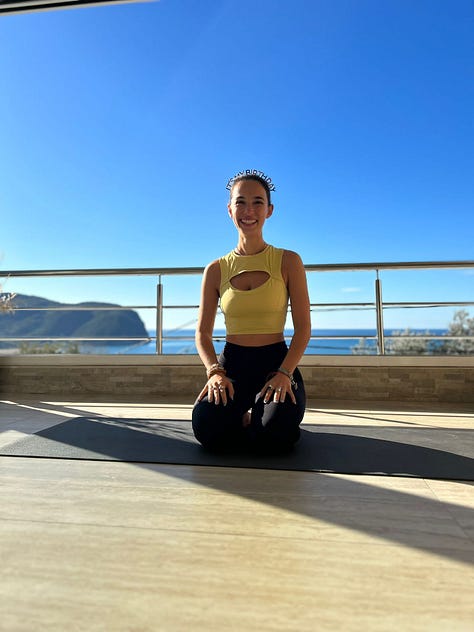
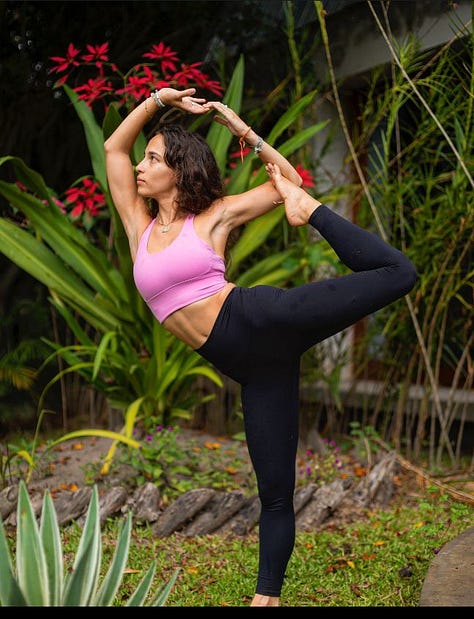
I also feel nervous at the thought of seeing yoga as a more formalised thing in my life. I think there is this preoccupation today to capitalise on our hobbies and creative endeavours, typically the things we use as tools to regulate and rest ourselves. So, applying a productive lens to those things doesn’t sit comfortably with me. I don’t want yoga to begin to feel like something I have to do.
I try to be really cognoscente of the space I take up as well. Having a career in international development keeps you mindful of that. And yoga is an arena full of people hustling incredibly hard to build a sustainable life for themselves. It’s gruelling on your body to teach often enough to pay your rent in a big city like London and, seeing as I have no intention of stepping away from my current career path, I don’t know how comfortable I feel taking up space when other people have devoted themselves to being yoga teachers full time.
There’s also an appropriation aspect to it. I was really mindful of doing a training that wasn’t clouded by the western lens that dominates a lot of yoga now, but I haven’t settled on my own place in the yoga teacher world as of yet.
Ellie thank you so much for sharing in such a thoughtful and open way. I love that you complied your 30 before 30 list, and as I approach this new decade (with, as you know, much trepidation) I somewhat regret not having done one myself. But - inspiration perhaps for a 30 at 30 list! I also think it’s really encouraging how you gifted yourself this new path into, and appreciation of, yoga, after it had become so important to you.
And you’ve already hinted at how meaningful your career path is to you, and that being part of the reason why yoga will likely always be an added bonus rather than the main project. Could you share more insight into the meanderings that led you into a 9-5 that you actually feel really dedicated to?
I’ve become a lot less purist about this as I’ve got older, but I could never wrap my head around the point of doing a job where your output just feeds back into the current system we have and doesn’t try shifting anything for the better. I know a lot of privilege shaped that view and that it’s too narrow a perspective to have on what is “meaningful” career path wise – but that’s fundamentally what led me to where I am. I work for an international aid watchdog that examines how aid in conflict settings is delivered. I review if it is appropriately adapted for local contexts and intersectionalities, and do research on gendered realities on the ground to shape multilateral strategies that target women and girls.
I’ve always been curious about the ways in which the world works, why things are the way they are and how much autonomy we have, or don’t have, to change them. I grew up in Hong Kong and spent all my pre-university summers visiting either Hong Kong or neighbouring countries in Asia. It’s a country and region of huge contrasts and disparities in terms of wealth and freedoms. I always wanted to understand why such vast disparity existed. I recall being confused as to why people would recognise how unjust the world could be, as if it was something completely outside of themselves. As if it didn’t need our complicity to function, and our consent to exist in the first place. I’ve come to understand power structures are much more cemented into the realms of our existence, weighed down by bureaucracy and riddled with well-meaning contradictions.
So, this curiosity, paired with wanting to spend my time doing something that was trying to shift power structures that keep people in poverty and conflict, led to me knowing I wanted to work in international aid. I curated my university choices and work experience accordingly, studying International Relations, and then lots of volunteering. It’s been a slog at times. It’s not an easy sector to build a career in without pre-existing connections and savings to fall back on. It's also a deeply flawed sector and it has taken me time to figure out where I feel comfortable sitting within it. So, what’s “meaningful” for me has shifted from wanting to do the more “sexy” on-the-ground delivery work to shaping and evaluating policy and strategy – which is what I do and love now. I basically get paid to do my university degree.
But I think it’s important to say, when talking about “meaningful” careers, that your work doesn’t have the be the outlet in life where you channel something that feels purposeful. Whenever I talk about the sector that I work in people often respond by saying they wish they’d done something that felt more meaningful to them. I think it’s just as effective to use your spare time to volunteer or set aside an amount of your monthly pay check to donate regularly to small charities that mean something to you.
Yeah I think that’s a helpful way to look at it, especially given that, as you say, careers in this sort of space are not always the most accessible.
But you’re also doing more to try and expand that accessibility, having an impact through OGIP, a feminist organisation you co-founded, that aims to advance, shape, and influence the Women, Peace, and Security (WPS) and Youth, Peace, and Security (YPS) agendas to be more inclusive, intersectional, and decolonised through advancing young voices and experiences.
I loved exploring this with you when we recorded a podcast episode together for last year, and learning more about what it takes to be an activist in this way and live up to founding principles.
Could you share some methods for how you actually find time to work on this side project, and how others might look to set up or work with organisations doing this kind of work, regardless of what their 9 – 5 looks like?
With great great difficulty is the answer! But here are some things that help…
🧾 I make monthly to-do lists that then feed into a weekly overview to-do list – thinking about my weekly to-dos instead of daily helps me manage competing deadlines from different outlets. Notion is great for this!
💡 Working somewhere with a community feel – at first side projects and your own initiatives feel fun and energising but once that passes, you realise they are also jobs. Having other people to bounce ideas off and who care about the thing you’re working on as much as you really helps.
👩🏽🤝👩🏻 Intersectional work structures – at OGIP we ask ourselves whose timescale we’re working to. When we feel rushed and up against multiple deadlines, we try remind ourselves that we are trying to re-imagine the way the world works and we don’t need to be preoccupied by speed and urgency. We try to set very flexible deadlines to make the voluntary work more feasible and accessible.
⌚ Unstructured routine – for me, letting go of control of a schedule for when I fit OGIP work in, plus rest and fun time, has allowed me to stop beating myself up when I can’t do it all – because you can’t consistently do everything. Take the pressure off yourself and recognise every week will be different depending on what you, your job and your side projects need.
🚫 Saying no – this doesn’t come easily to me, but I’m working on it. At OGIP we’ve been intentional at creating an environment where people feel comfortable and able to say no when they feel like they can’t take on any more, or need to re-prioritise for a week or couple of months.
Thanks Ellie - I think they’re great tips for life generally!
Very excitingly, you also shared on Instagram recently your intention to start writing here on Substack. Would you like to share a bit more about your plans for this, and the kind of thing readers can expect?
Yes! My Substack is called
. Last year I realised my work in conflict and peacebuilding spaces was weighing me down and I wasn’t finding joy as easily as normal. I signed up to a 12-week The Artist's Way course and I leant back into creativity and joy. I started to speak on panels about gender and equity, and of course recorded the podcast with you. I realised how much I enjoyed thinking and talking about topics I work on outside of my work outlets. On the last day of my course, I bought a bottle of wine illustrated with a hippo doing yoga and booked my 200-hour YTT.While I qualified as a yoga teacher, I learnt about how to unravel bodies and minds through asana and philosophy, and I realised these teachings tied with my jobs - where I work to unravel power structures that keep people in poverty and conflict. Writing has always helped me connect the dots, and that’s what I hope to use Unravelling Things for.
If you fancy it, dear reader, I’d love if you subscribed to follow my musings as I continue to unravel!
I love the yoga/hippo/wine element to this! And so looking forward to reading more from you.
As you know, the Cultural Compass series is a key feature of The Navigation, so to finish off do you have anything you've read/watched/listened to lately that you'd like to recommend for readers?
Of course! I have some podcasts I frequently revisit:
🎧 How to Fail with Deborah Francis-White - for when I get in my head about following conventional timescales expected of women.
🎧 Clementine Ford’s Big Sister Hotline with Laura Bates - for when I want to re-engage in my feminism.
🎧 Jameela Jamil’s iWeigh with Clementine Ford - when thinking about building a life and partnership with a man through a feminist lens.
Then some general goodies:
🎧 Media Storm series - on abortion rights in the UK. There's also a great one on the police force.
🎧BBC Radio 4 Witch podcast – examining how women being categorised as witches has always been a tool for oppression, yet how leaning into our intuition and mystical ways can also liberate us.
For books, it’s too hard. There are simply too many to name. But I do bang on a lot about books on Instagram, and will likely do so on Substack too, if anyone wants to follow along.
A lovely way to end - I like how you have specific anchoring episodes to return to.
Thank you so much for everything you’ve shared here, and I hope the rest of your bank holiday weekend - and South Africa trip - is filled with joy and creativity!
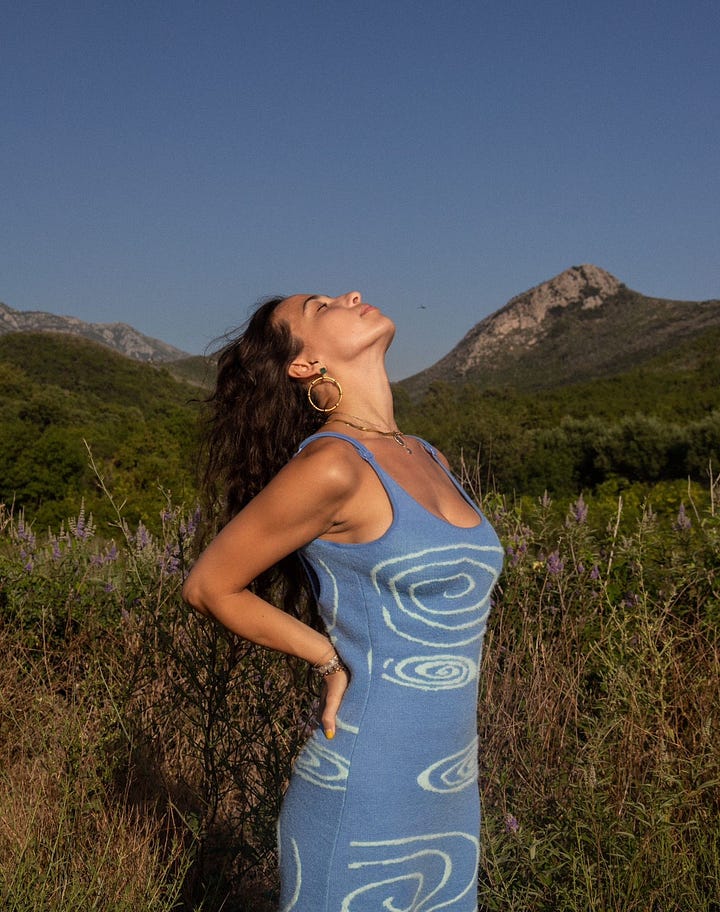

If you liked this piece and would like to show some support without a paid subscription, a Ko-fi coffee is always welcome.☕





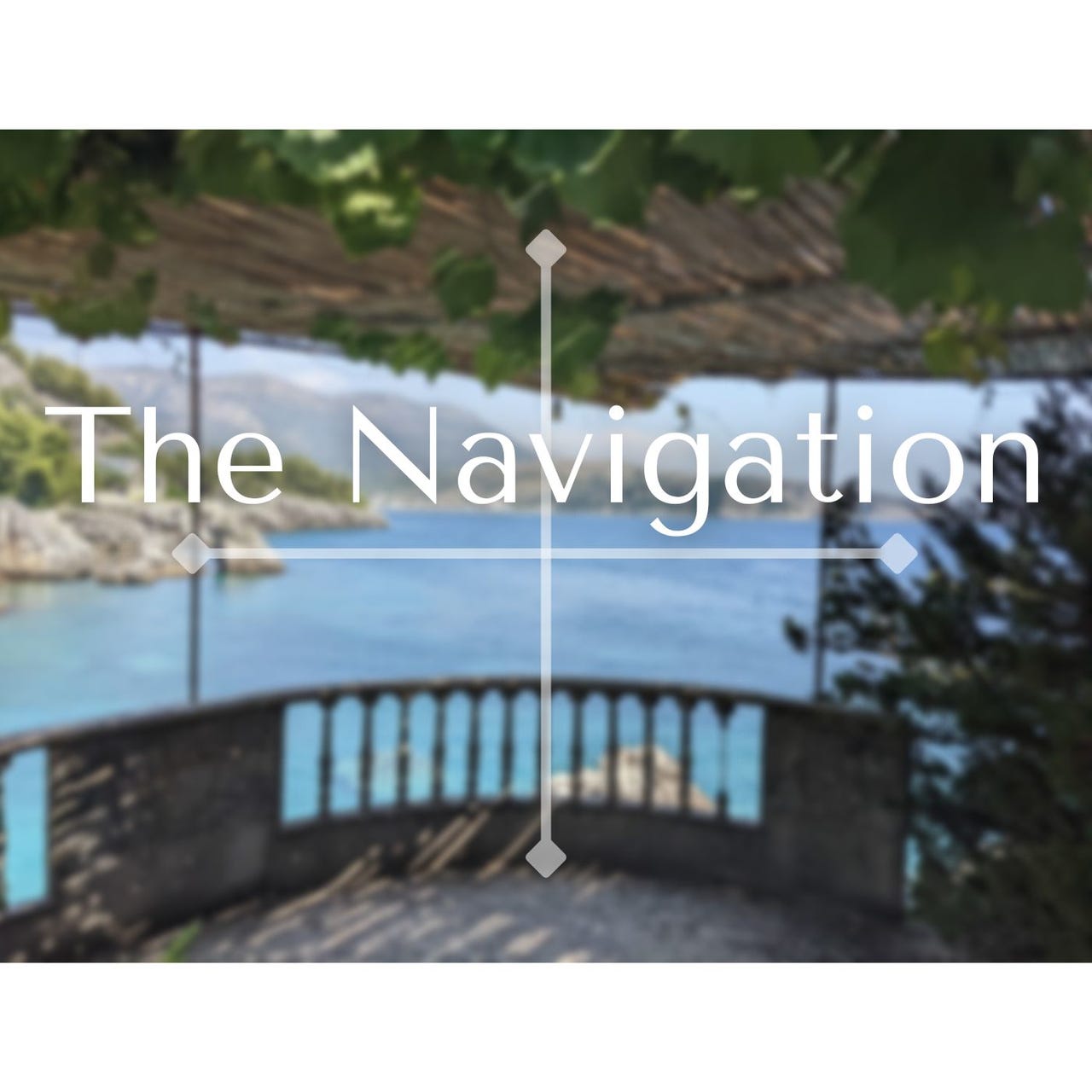
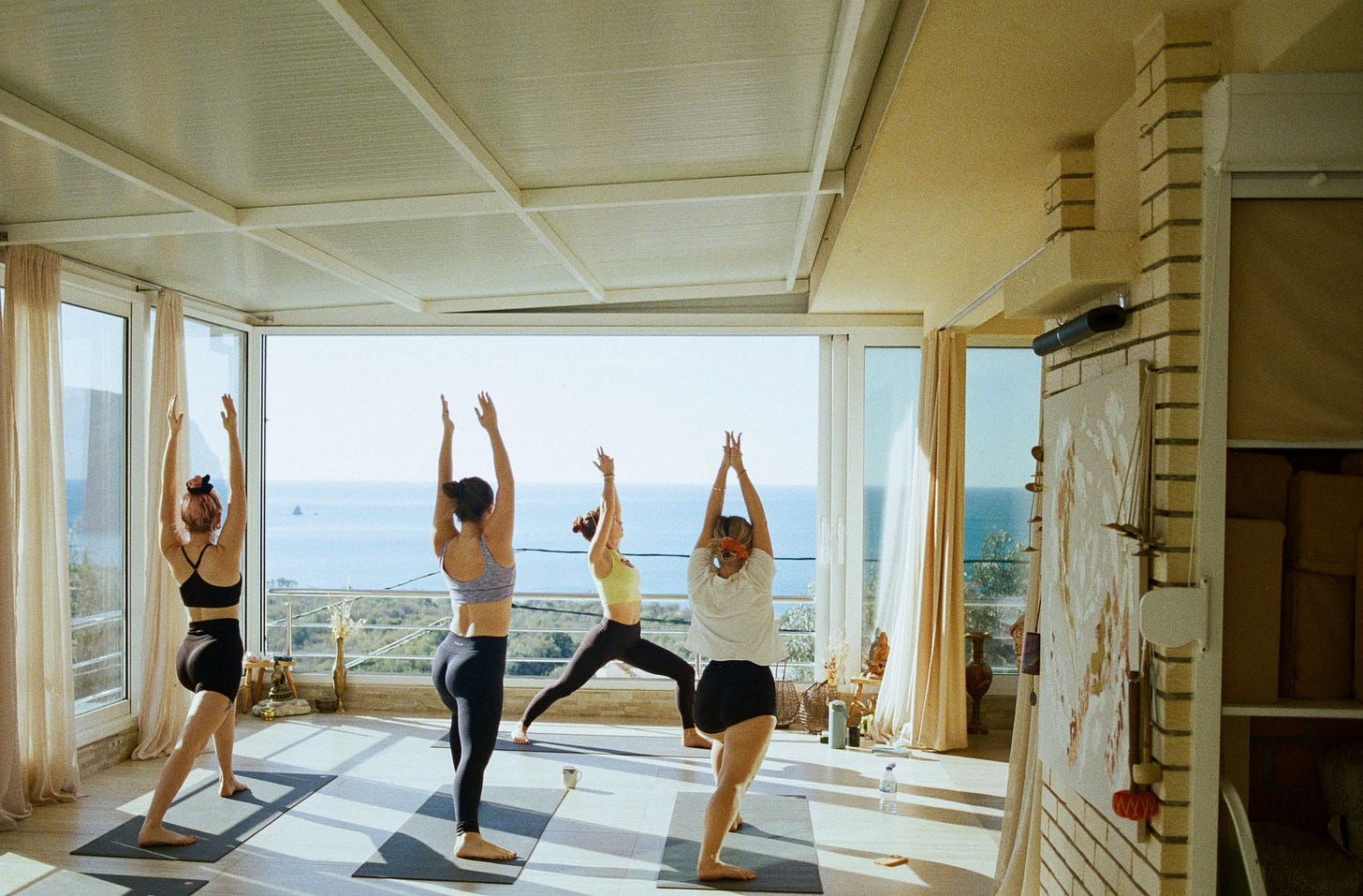



Thanks for resharing this Lauren - loved the thoughts on intersectional systems - whose agenda are we working to - as well as the idea of your work not needing to be the meaningful thing - very much agree!